
Short Scale Neff PDF Metaphysics Of Mind Psychiatry
90% Of Our Titles Are Just $12.99! Vast Selection - DRM-Free Download.

(PDF) Revisiting the ScaleShort Form Stronger
Self-compassion refers to being kind and understanding towards oneself following adverse life experiences. Although it is valuable to focus on self-compassion in general, there is merit in also considering specific types of self-compassion. Accordingly, the current research describes a domain-specific measure of being self-compassionate in response to interpersonal adversities and challenges.
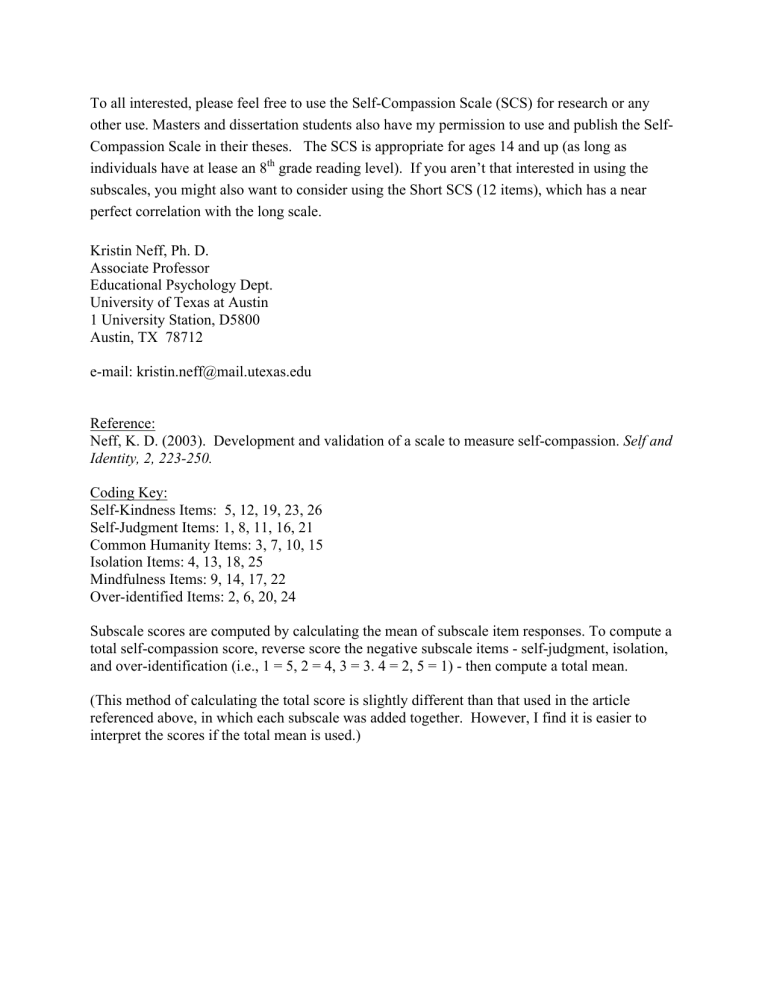
Self Compassion Scale
Development and validation of a scale to measure self-compassion. Self and Identity, 2, 223-250. Coding Key: Self-Kindness Items: 5, 12, 19, 23, 26 Self-Judgment Items: 1, 8, 11, 16, 21 Common Humanity Items: 3, 7, 10, 15 Isolation Items: 4, 13, 18, 25 Mindfulness Items: 9, 14, 17, 22 Over-identified Items: 2, 6, 20, 24
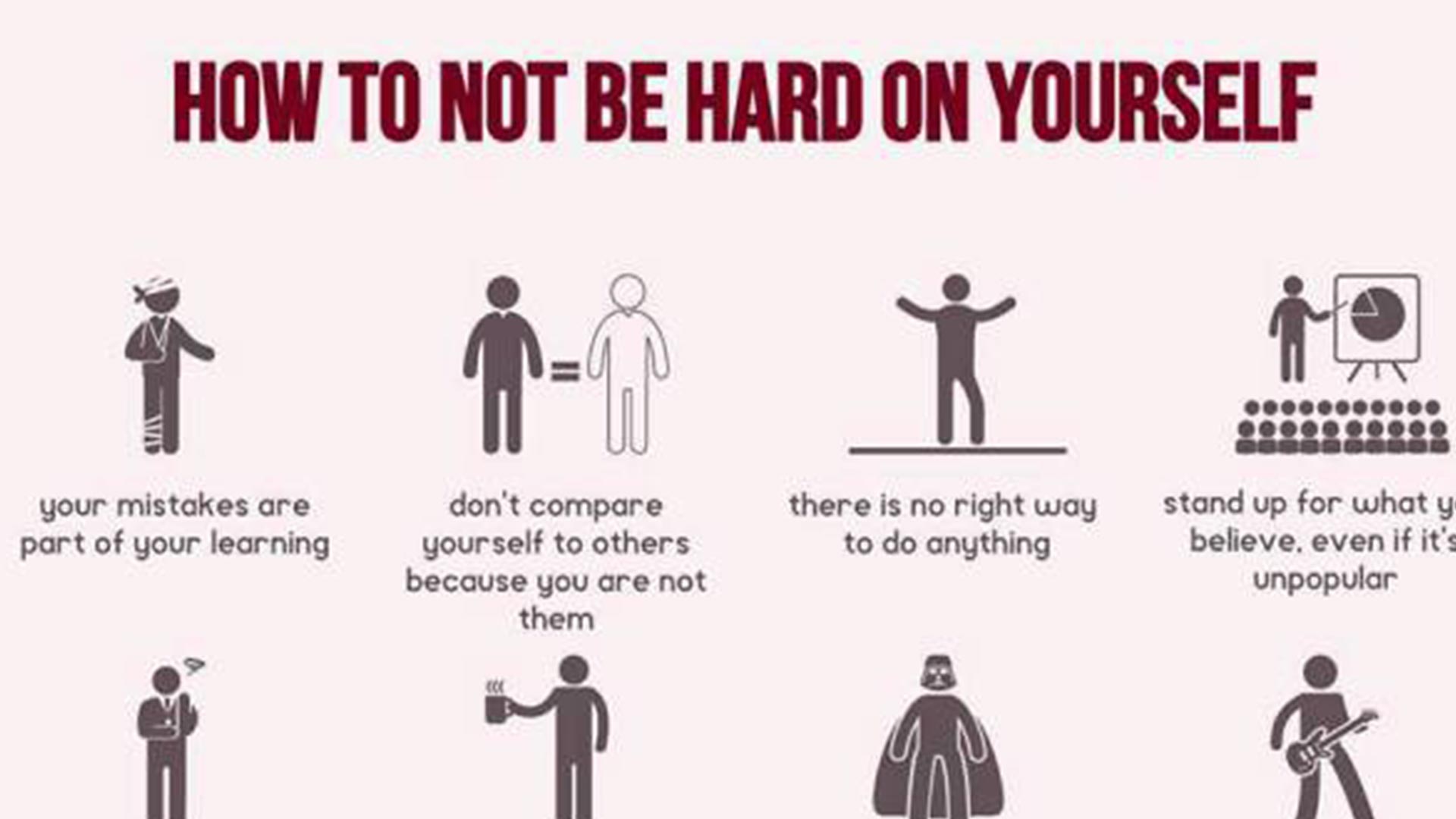
a visual guide
Self-compassion involves relating to ourselves with self-kindness and less self-judgment, feelings of common humanity and fewer feelings of isolation, mindfulness and decreased overidentification in situations of perceived failure, inadequacy, or personal suffering.

How to Practice Self Compassion and Tame Your Inner Critic
Self-compassion involves relating to ourselves with self-kindness and less selfjudgment, feelings of common humanity and fewer feelings of isolation, mindfulness and decreased overidentification in situations of perceived failure, inadequacy, or personal suffering. Most research on self-compassion uses the SelfCompassion Scale (SCS) to measure the construct. The SCS is considered to be.

Scale
Having self-compassion means being able to relate to yourself in a way that's forgiving, accepting, and loving when situations might be less than optimal. We know that it's similar to (yet less permanent than) self-love and that it's distinct from self-esteem, but how do we show self-compassion? Self-Kindness
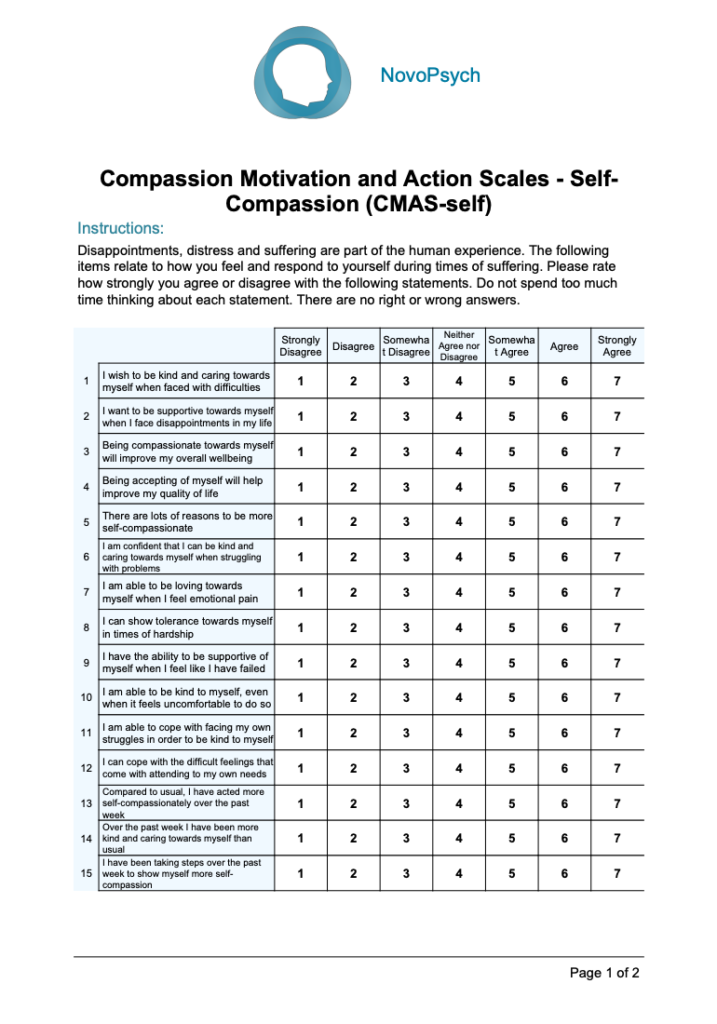
Compassion Motivation and Action Scales (CMASself
The Self-Compassion Scale (SCS) is one of the several tools for measuring compassionate self-attitude. Despite its popularity, there is an ongoing controversy regarding its factor structure. Previous studies employing exploratory structural equation modeling (ESEM) found support for the single-bifactor (one general and six group.

Factor structure of the sixfactor model of the Scale
We have also created the State Self-Compassion Scale (S-SCS; Neff et al. 2021b) that measures compassionate self-responding in the present moment. There is an 18-item long form of the S-SCS that can assess the six components of self-compassion and a 6-item short form that assesses overall state self-compassion.
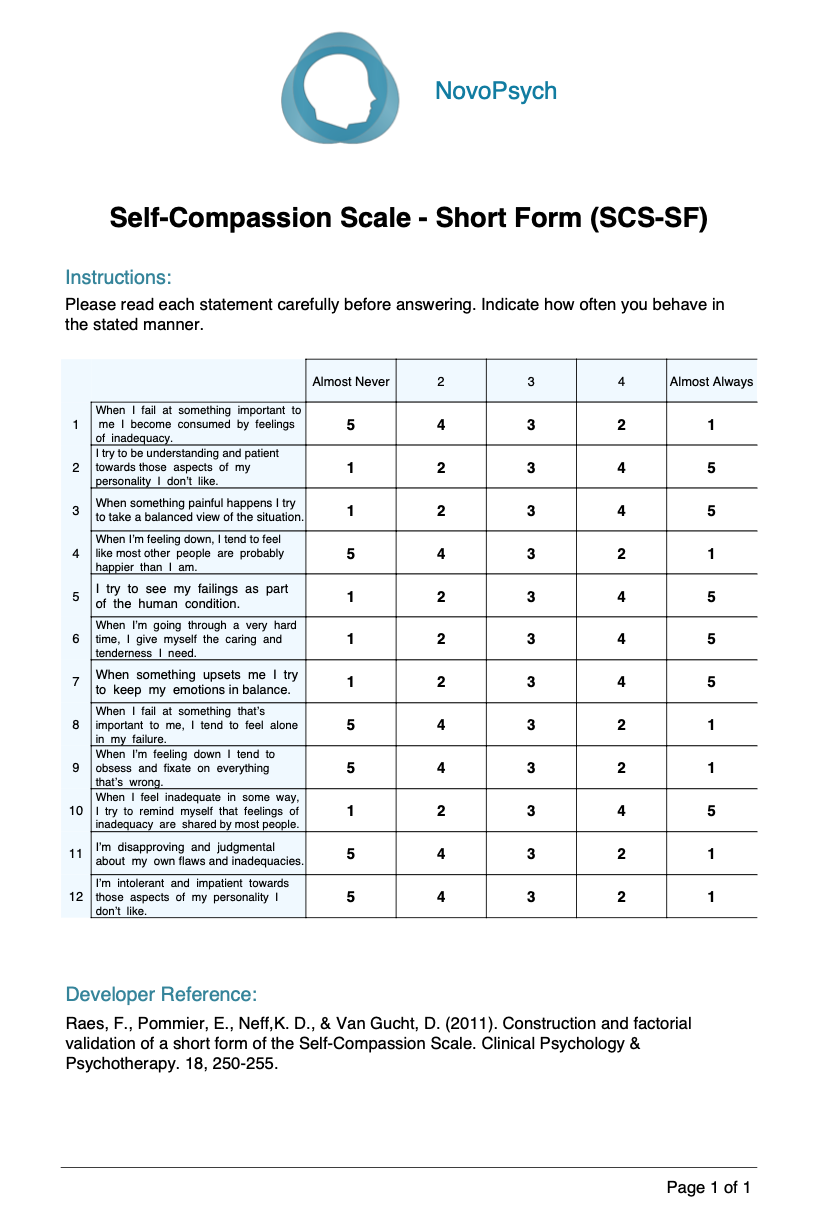
Scale Short Form (SCSSF) NovoPsych
Self-compassion is a caring and supportive way of relating to oneself in times of distress. It involves kindness rather than harsh self-judgment, a sense of common humanity rather than isolation, and mindfulness rather than overidentification with painful thoughts and feelings.

Correlated twofactor model of the Scale (Neff, 2003b
The Self-Compassion Scale - Short Form (SCS-SF) is a 12-item self-report measure that is used by adults to measure their capacity for self-compassion - the ability to hold one's feelings of suffering with a sense of warmth, connection and concern.

[PDF] The Development and Validation of the Compassion Scale Semantic
The Self-Compassion Scale (SCS) is currently the only self-report instrument to measure self-compassion. The SCS is widely used despite the limited evidence for the scale's psychometric properties, with validation studies commonly performed in college students. The current study examined the factor structure, reliability, and construct validity of the SCS in a large representative sample.
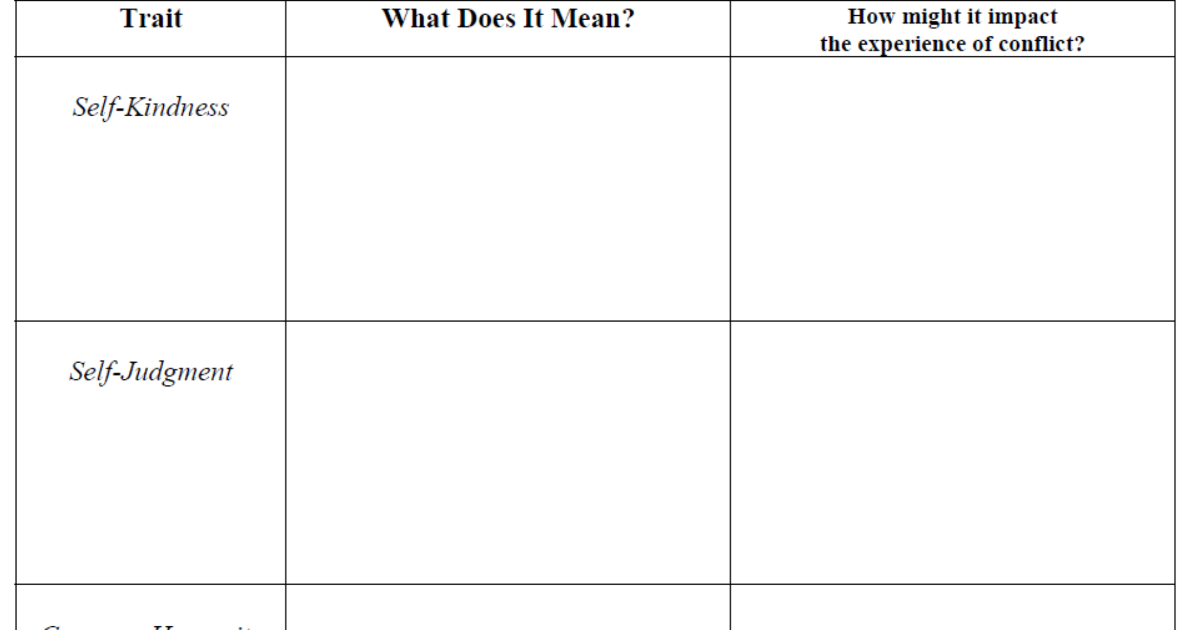
Path 2 Using Neff's Scale
Kristin Neff developed a self-compassion scale to help people measure whether their own self-compassion is low, moderate, or high. She also developed several exercises that help enhance self.

Factor Structure of the Scale Short Form generated by
Self-compassion entails being warm and understanding toward ourselves when we suffer, fail or feel inadequate, rather than punishing ourselves with self-criticism (Neff, 2003a). We cannot always achieve exactly what we want.

Factor structure of the twofactor model of the Scale
Indicate how often you behave in the stated manner, using the following scale: Almost never Almost always 5 When I fail at something important to me I become consumed by feelings of inadequacy. I try to be understanding and patient towards those aspects of my personality I don't like.

Path 2 Using Neff's Scale
Relevant articles Neff, K. D. (2003). Development and validation of a scale to measure self-compassion. Self and Identity, 2, 223-250. PDF Neff, K. D. (2020). Let the empirical evidence speak on the Self-Compassion Scale. Mindfulness, 11, 1900-1909. PDF Neff, K. D. (2022).

Distribution and the mean of the scale and its
Average overall self-compassion scores tend to be around 3.0 on the 1-5 scale, so you can interpret your overall score accordingly. As a rough guide:1-2.5 for your overall self-compassion score indicates you are low in self-compassion. 2.5-3.5 indicates you are moderate. 3.5-5.0 means you are high.